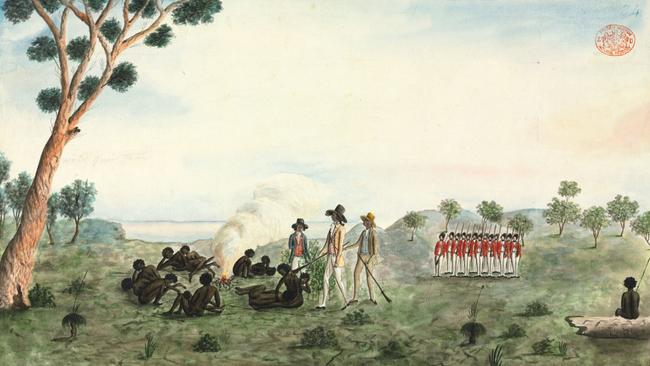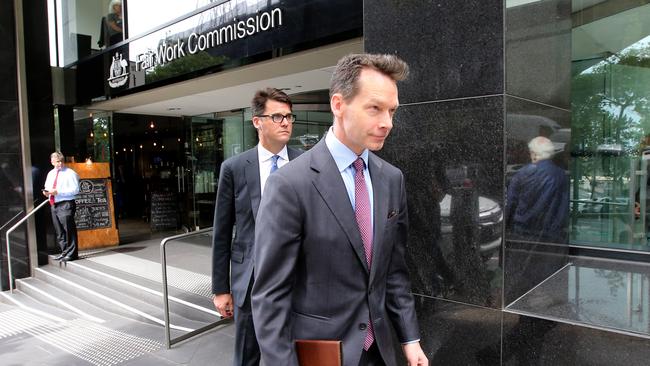On ‘terra nullius’ and the Indigenous voice to parliament, the Victorian Bar should stick to facts, says Henry Ergas


Of course, Collins – a respected former president of the Australian Bar Association – is hardly alone in excoriating terra nullius. For Stan Grant, it is “what haunts us”, a “law of whiteness”, installed at European settlement, “that anyone who did not worship Jesus Christ was less than human”, while Noel Pearson claims it lay at the heart of “the terrible ideology” that “underpinned (the) vehemence (of) the Australian colonial project”.

But those contentions bear little relation to historical reality. Thus, as the University of London’s Professor Andrew Fitzmaurice, the leading authority on the legal foundations of European colonisation, recently noted, “no such doctrine known as ‘terra nullius’ was employed to discuss empire prior to the late 19th century”. And Bain Atwood, professor of history at Monash University, has echoed Fitzmaurice’s assessment, concluding that the contention the British government relied on terra nullius to claim possession of New Holland is unfounded.
To say that is not to deny there was a doctrine, commonly referred to as the doctrine of occupation, that could legitimate the acquisition of “empty” territory. But as Sir William Blackstone (1723-1780) noted in his influential Commentaries on the Laws of England, that doctrine only provided a legal basis for claiming ownership of land that had literally not been occupied by anyone else.
Nor was Blackstone unusual in stressing the doctrine’s limited scope and applicability. Rather, he was following the period’s most prominent jurists – including Samuel von Pufendorf and fellow German Christian Wolff, the Huguenot Jean Barbeyrac and Cambridge’s Thomas Rutherforth – who all firmly repudiated the idea that the doctrine of occupation justified dispossessing hunter-gatherers of their lands.
And while the great Swiss legal theorist Emer de Vattel (1714-1767) was clearly sympathetic to European imperial expansion, his Law of Nations – which was the most widely cited text on international law in early colonial Australia – emphasised that even if a territory’s “natives do not form a political society, one cannot, without injustice, deprive them of their land”: a point William Wentworth, who was no friend of the Aborigines, hammered home to the recently established Supreme Court of NSW in R v Lowe (1827).
It is therefore unsurprising that “terra nullius” does not appear in official documents relating to the establishment and consolidation of the Australian colonies. And it is unsurprising too that there is no case law relying on those concepts to dispossess Indigenous Australians.
Indeed, even Justice William Burton, who wrote the leading judgment in R v Mitchell (1836), which is sometimes claimed to have enshrined the doctrine in the colonies’ law, recognised that “Aboriginal natives are entitled to the possession of those rights valuable to them”.
Moreover, the weight placed on the rights of Indigenous Australians increased after 1838 when the Colonial Secretary, Lord Glenelg, unambiguously directed the colonial authorities that the Aborigines were to be treated as British subjects and provided with all the protections that entailed. In implementing that direction, the colonial authorities did not grant Indigenous people transferable ownership rights to land; analogising their rights to the customary usages long recognised in England’s land law, they instead sought to ensure pastoral leases provided them with what Sir George Gawler, the governor of South Australia, described as “an ample sufficiency for their present and future use”.
That decision partly reflected the inequalities of bargaining power apparent in the so-called treaty that adventurers from Van Diemen’s Land had made with the Kulin people in the Port Phillip District in 1835 – a treaty Glenelg promptly repudiated.
As Gawler observed, with the Aborigines’ relative “strength that of the pygmy to the giant”, it was certain any rights that could be sold would immediately be filched away by unscrupulous settlers.

However, the decision also reflected the authorities’ reluctance to permanently alienate crown lands, as that would harm the colonies’ primary fiscal base and compromise the ability to keep crown land in trust for future generations. Already struggling to resist the squatters’ demands for freehold title, successive governors therefore tried to refuse any ownership claims based on the long-term use, occupation or improvement of crown land, regardless of who made them.
That the authorities’ efforts ultimately failed is clear from the tortured history of the colonies’ land reforms. And just as it is undeniable that the colonial governments couldn’t control the bitter, often lawless, conflicts between squatters and selectors, so is it undeniable that they proved incapable of preventing the far deadlier breaches of Indigenous Australians’ legal entitlements.
But blaming those failings on “the legal fiction” of terra nullius makes no sense: the only fiction is that there was such a fiction. And Collins’ contention that terra nullius “underlies” our Constitution is even more absurd: in the million-plus words spoken during the constitutional conventions, there is no mention whatsoever of terra nullius, nor, as best one can tell, of any cognate concept.
How then did the doctrine enter Australian folklore? The primary culprit lies in an offhand (and plainly incorrect) remark by Lord Watson in the Privy Council case of Cooper v Stuart (1889). Although contradicted by Sir Isaac Isaacs in 1913, that remark seeped into Mabo v Queensland (1992), in which Justice Gerard Brennan, whose judgment can be considered the majority judgment, referred repeatedly to “the enlarged notion of terra nullius” – an “enlarged notion” whose relation to the actual doctrine of terra nullius, as it evolved in the second half of the 19th century, is questionable, as is its link, if any, to the 18th-century doctrine of occupation.
Weaponised soon thereafter, “terra nullius” was transformed into a shorthand for the nation’s original sin. Elevated from fiction into foundational fact, the term became a negative creation myth, taught in every school and university, in which a signifier without a signified serves as a synecdoche for a blood-soaked stain on our national character. And in the current climate, where historical truth trades at a discount, that myth provides those who wield it with a powerful tool of moral blackmail.
Yet even at a time when so many of the highly educated readily sacrifice accuracy to advocacy, one expects better from the Bar, which is vested with statutory privileges and obligations. It is, no doubt, far easier and more pleasing to be politically correct than to be correct; but the Bar would be doing itself – and the Australian community – a great disservice if, by leaping on today’s bandwagon, it allowed the power of its passions to overwhelm the ballast of its prudence.







“It was wrong on the arrival of Europeans for Australia to be declared terra nullius,” wrote Matt Collins KC on these pages earlier this week. And even worse, he said, that “legal fiction underlies our nation’s founding document, the Constitution”.